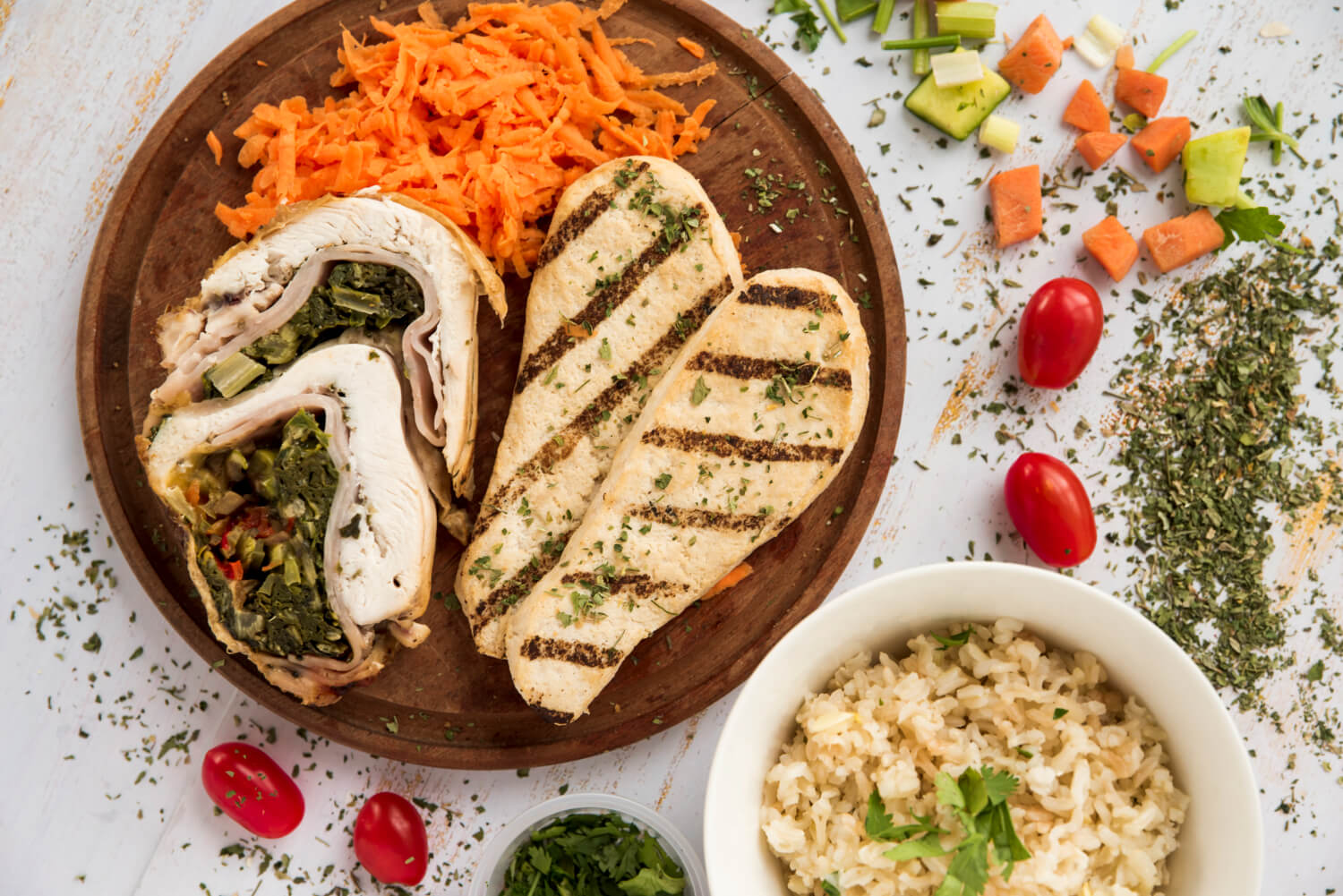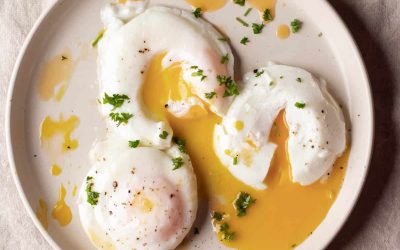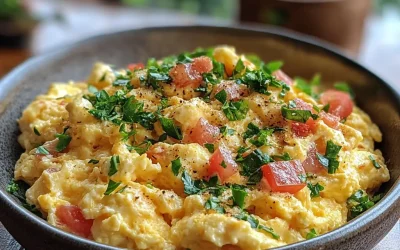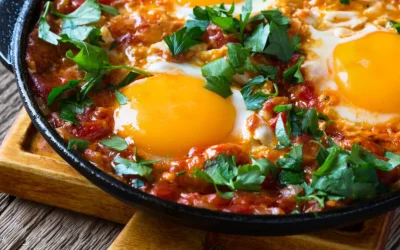Incorporating high-protein foods into your diet is a cornerstone of a healthy lifestyle. Protein plays a vital role in supporting muscle repair, maintaining metabolism, and providing lasting energy throughout the day. Whether you’re aiming to lose weight, build muscle, or maintain overall health, including the right protein sources in your daily meals can make all the difference.
This guide to the Top 10 Protein Foods will help you discover the best protein-packed options, from versatile plant-based choices to lean meats. Each option is packed with essential amino acids, helping you make smarter dietary choices that suit various lifestyles and health goals.
Benefits of High-Protein Foods
Muscle Growth and Repair
Protein is essential for muscle repair and growth, making it a key nutrient for active individuals and those engaged in resistance training. Consuming adequate protein supports muscle tissue recovery, reduces soreness, and helps prevent injury, making it ideal for people aiming to build lean muscle mass or maintain strength over time.
Satiety and Weight Management
High-protein foods are known to promote feelings of fullness, which can be helpful for weight management. Protein takes longer to digest than carbohydrates, which helps reduce hunger between meals. By incorporating protein-rich options, such as eggs, Greek yogurt, or chicken, you’re more likely to feel satisfied and less likely to reach for high-calorie snacks.
Overall Health and Wellness
Protein is not just for muscle—it also supports other bodily functions, from immune health to skin repair. High-protein foods often contain additional nutrients like calcium, iron, and omega-3 fatty acids that contribute to a balanced diet. Consuming enough protein daily helps the body function at its best, supporting everything from hormone production to bone health.
Top 10 Protein Foods for a Healthy Lifestyle
1. Eggs
Eggs are nutrient-dense and highly versatile, making them a fantastic addition to any diet. They are packed with protein and essential nutrients that support brain health, metabolism, and muscle recovery.
Nutritional Content (per large egg):
- Protein: ~6 grams
- Calories: ~70
- Fat: 5 grams (1.6 grams saturated)
- Key Nutrients: Vitamin B12, choline, selenium
2. Chicken Breast
Chicken breast is a lean protein powerhouse, widely used by athletes and fitness enthusiasts to promote muscle growth and repair while keeping fat intake low.
Nutritional Content (per 100 grams)
- Protein: ~31 grams
- Calories: ~165
- Fat: 3.6 grams (1 gram saturated)
- Key Nutrients: B vitamins, phosphorus, selenium
3. Greek Yogurt
Greek yogurt offers a protein-packed option with added probiotics for gut health, making it ideal for breakfast, snacks, or even desserts.
Nutritional Content (per 100 grams, plain, non-fat)
- Protein: ~10 grams
- Calories: ~59
- Fat: 0.4 grams
- Key Nutrients: Calcium, potassium, probiotics
4. Lentils
Lentils are a high-fiber, plant-based protein source that’s perfect for vegetarian and vegan diets. They’re also rich in essential minerals like iron and folate.
Nutritional Content (per 100 grams, cooked)
- Protein: ~9 grams
- Calories: ~116
- Fat: 0.4 grams
- Key Nutrients: Fiber, iron, folate, manganese
5. Cottage Cheese
Cottage cheese is a low-fat, high-protein option with calcium, ideal for snacks or as a base for various savory and sweet dishes.
Nutritional Content (per 100 grams, low-fat)
- Protein: ~11 grams
- Calories: ~98
- Fat: 4.3 grams (1.7 grams saturated)
- Key Nutrients: Calcium, vitamin B12, phosphorus
6. Fish (e.g., Salmon, Tuna)
Fatty fish like salmon and tuna provide protein along with omega-3 fatty acids, supporting heart and brain health.
Nutritional Content (per 100 grams, salmon)
- Protein: ~20-25 grams
- Calories: ~206
- Fat: 13 grams (4 grams saturated)
- Key Nutrients: Omega-3 fatty acids, vitamin D, selenium
7. Quinoa
Quinoa is a gluten-free, complete protein source ideal for vegetarians and vegans. It’s packed with fiber and essential amino acids.
Nutritional Content (per cup, cooked)
- Protein: ~8 grams
- Calories: ~222
- Fat: 3.6 grams
- Key Nutrients: Fiber, magnesium, manganese
8. Chickpeas
Chickpeas are an affordable, protein-rich legume, high in fiber to aid digestion and support fullness.
Nutritional Content (per 100 grams, cooked)
- Protein: ~8 grams
- Calories: ~164
- Fat: 2.6 grams
- Key Nutrients: Fiber, folate, iron
9. Almonds
Almonds are a convenient, nutrient-dense snack option with protein, healthy fats, and vitamin E.
Nutritional Content (per ounce, about 23 almonds)
- Protein: ~6 grams
- Calories: ~164
- Fat: 14 grams (1.1 grams saturated)
- Key Nutrients: Vitamin E, magnesium, fiber
10. Tofu
Tofu is a versatile plant-based protein source that easily absorbs flavors, making it an excellent meat alternative.
Nutritional Content (per 100 grams)
- Protein: ~8 grams
- Calories: ~76
- Fat: 4.8 grams (0.7 grams saturated)
- Key Nutrients: Calcium (fortified), iron, manganese
Protein Foods by Dietary Needs
Top Protein Foods for Weight Loss
For those looking to manage or lose weight, these high-protein, low-calorie foods can help keep you full while supporting muscle retention.
- Eggs: With only ~70 calories per egg and high satiety, eggs make an excellent breakfast or snack option for weight loss.
- Greek Yogurt: Low in calories and rich in protein, Greek yogurt helps reduce cravings and can be enhanced with fruits or nuts.
- Chicken Breast: High in protein and low in fat, chicken breast is ideal for keeping meals filling and calorie-conscious.
Top Protein Foods for Muscle-Building
If you’re aiming to build muscle, these protein-rich foods offer the necessary amino acids to support muscle growth and recovery.
- Chicken Breast: Lean and high in protein, chicken breast is a favorite among bodybuilders and athletes.
- Cottage Cheese: Cottage cheese is a convenient source of casein protein, which is slowly digested, making it ideal before bed to support overnight muscle recovery.
- Lentils: High in protein and complex carbohydrates, lentils are great for muscle gain, especially for vegetarians.
Best Vegetarian Protein Foods
For those on a vegetarian or vegan diet, these plant-based protein options provide a balanced mix of essential nutrients without relying on animal sources.
- Tofu: With ~8 grams of protein per 100 grams, tofu is a versatile plant-based protein that’s great in both savory and sweet dishes.
- Quinoa: A complete protein with all essential amino acids, quinoa is an ideal grain substitute for vegetarians and vegans.
- Chickpeas: Packed with fiber and protein, chickpeas are affordable, filling, and perfect in salads, curries, or as roasted snacks.
Top 10 Protein Foods per 100g
For those who want to maximize their protein intake per serving, here’s a quick comparison of some of the best high-protein foods, measured by protein content per 100 grams.
| Food Item | Protein (per 100g) | Calories | Fat | Key Nutrients |
|---|---|---|---|---|
| Chicken Breast | ~31 grams | ~165 | 3.6 grams | B vitamins, phosphorus |
| Cottage Cheese | ~11 grams | ~98 | 4.3 grams | Calcium, vitamin B12 |
| Greek Yogurt | ~10 grams | ~59 | 0.4 grams | Calcium, probiotics |
| Lentils | ~9 grams | ~116 | 0.4 grams | Fiber, iron, folate |
| Tofu | ~8 grams | ~76 | 4.8 grams | Calcium, iron |
| Salmon | ~20 grams | ~206 | 13 grams | Omega-3 fatty acids, vitamin D |
| Quinoa | ~8 grams | ~222 | 3.6 grams | Fiber, magnesium |
| Almonds | ~6 grams | ~164 | 14 grams | Vitamin E, magnesium |
| Eggs | ~13 grams | ~155 | 11 grams | Vitamin B12, choline |
| Chickpeas | ~8 grams | ~164 | 2.6 grams | Fiber, iron |
Protein Foods for Breakfast
Starting your day with protein can help keep you full and energized. Here are some quick, high-protein breakfast ideas to get your day off to a great start.
1. Greek Yogurt with Berries and Nuts
Benefits: Greek yogurt provides protein and probiotics, while nuts add healthy fats, and berries offer fiber and antioxidants.
- Tip: Add a handful of almonds or walnuts for an extra protein boost and a satisfying crunch.
2. Scrambled Eggs with Spinach
Benefits: Eggs are protein-rich and provide essential nutrients. Adding spinach boosts fiber and iron intake.
- Tip: For added flavor, sprinkle with black pepper and a pinch of cheese.
3. Cottage Cheese with Fresh Fruit
Benefits: Cottage cheese is low-calorie but protein-dense, making it perfect for weight management and muscle repair.
- Tip: Pair with fruits like berries or pineapple for a balanced sweet-savory flavor profile.
4. Tofu Scramble with Vegetables
Benefits: Tofu is an excellent protein source for plant-based diets and pairs well with vegetables.
- Tip: Add turmeric and nutritional yeast for flavor and color that mimic scrambled eggs.
5. Protein Smoothie with Quinoa and Almonds
Benefits: A smoothie combining quinoa, Greek yogurt, and almonds provides balanced macronutrients and keeps you energized for longer.
- Tip: Blend with spinach, banana, and your favorite milk for a nutritious, fiber-rich smoothie.
FAQs on Top 10 Protein Foods
What are the best protein foods for weight loss?
The best protein foods for weight loss are those high in protein but low in calories and fat. Examples include eggs, Greek yogurt, and chicken breast. These foods help promote fullness and prevent snacking, making them ideal for weight management.
How much protein do I need daily?
Protein needs vary depending on age, activity level, and health goals. Generally, the recommended dietary allowance (RDA) is 0.8 grams of protein per kilogram of body weight for adults. For athletes or those aiming to build muscle, this requirement may increase to 1.2-2.0 grams per kilogram.
Is it possible to get enough protein on a vegetarian diet?
Yes, a balanced vegetarian diet can provide adequate protein through foods like lentils, chickpeas, quinoa, tofu, and Greek yogurt. Combining various plant-based protein sources throughout the day ensures you get a complete profile of amino acids.
What protein foods are best for muscle gain?
For muscle gain, high-protein foods with complete amino acids are ideal, including chicken breast, fish (like salmon and tuna), eggs, and cottage cheese. Plant-based options like lentils and quinoa also support muscle growth, especially when combined with strength training.
Are plant-based proteins as good as animal-based proteins?
Plant-based proteins can be just as beneficial as animal-based proteins, although some may lack one or more essential amino acids. Combining different plant sources, like grains and legumes, provides a complete amino acid profile, making plant-based diets nutritionally sound.
Conclusion
Protein is an essential macronutrient that supports various bodily functions, from muscle growth to satiety and overall wellness. Whether your goal is weight loss, muscle building, or following a vegetarian lifestyle, including a variety of protein sources can help you reach your health objectives. With options ranging from eggs and chicken to plant-based staples like lentils and quinoa, there’s a protein source to suit every diet. Start incorporating these protein-packed foods into your meals to fuel your body and enhance your well-being.



